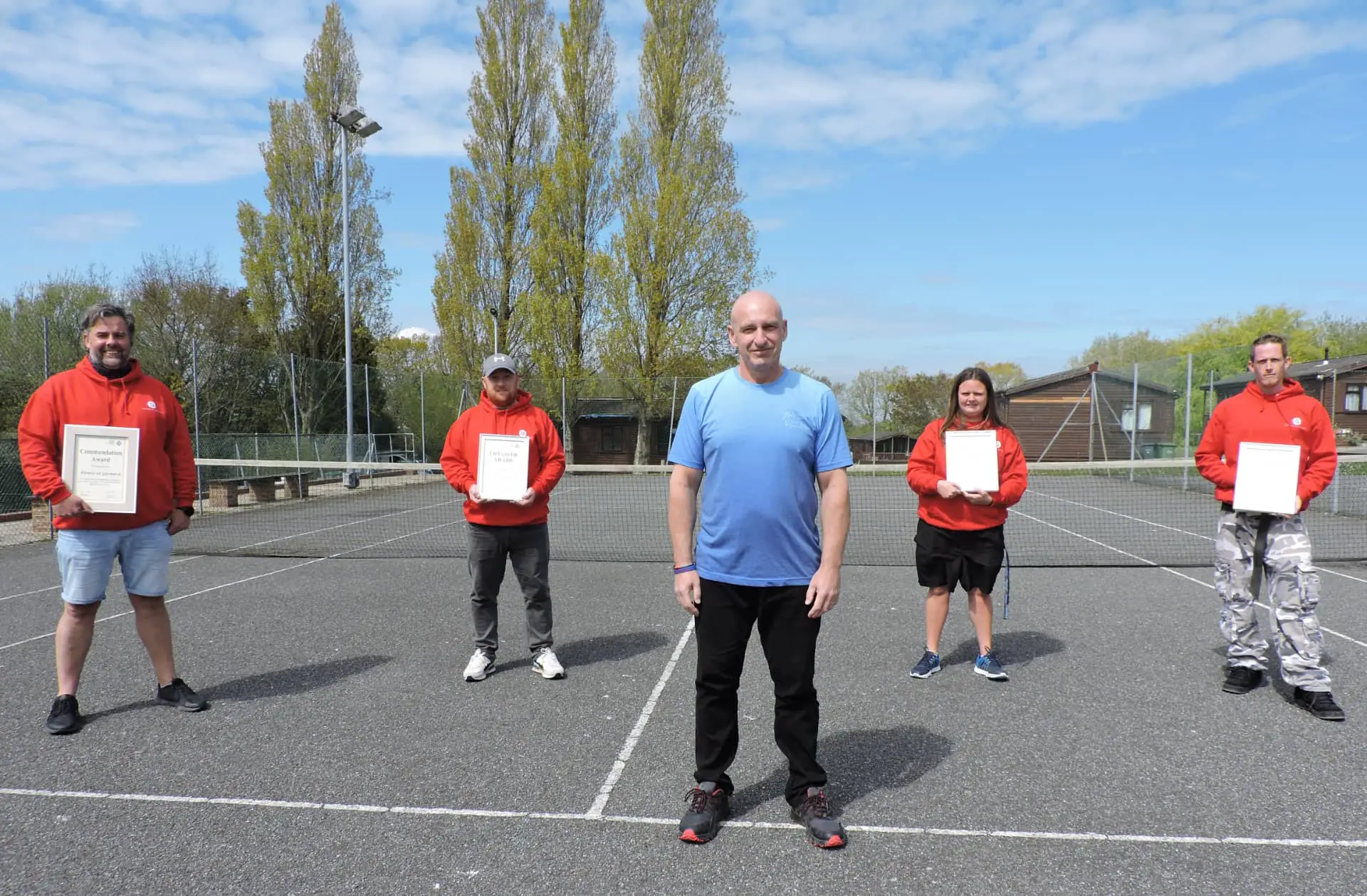The Isle of Wight Ambulance Service were proud to present Lifesaver Awards to the brave rescuers who provided CPR to someone who went into cardiac arrest and saved their life.
Paul Gould, 55, suffered a heart attack and went into cardiac arrest whilst swimming at the Fitness at Gurnard pool in Gurnard Pines, Cowes, last year. Lifeguards and a fellow swimmer at Gurnard Pines, who were trained in CPR (Cardio Pulmonary Resuscitation) took turns in providing the lifesaving treatment until the Ambulance Service arrived.
Walker: Paul is still here today because of their actions
Louise Walker, Ambulance Education, Training and Engagement Lead said,
“Undoubtedly because of all of their actions Paul is still here today and it is really important to recognise the skills they showed on that day and how they all worked together, not just physically but mentally as well.
“The importance of giving early CPR is so significant to survival of cardiac arrest and it’s amazing to have Paul here and know he will have a good quality of life. This is the outcome we would want for everyone.
“Due to the pandemic, these awards are being presented nearly a year later but on behalf of the Ambulance Service we want to thank them all. We are used to providing CPR but to provide this when least expecting it and out of your comfort zone is very commendable, well done, the team should all be so proud.”
Gould: I can never thank them enough
Paul Gould, cardiac arrest survivor said,
“I wanted to give them all a massive thanks, because of them I am still here today and I appreciate it was quite a stressful time, but not only did all their training kick in to give me quality CPR, but they also kept themselves together to be able to work efficiently and not let the scenario get the better of them. I can never thank them enough.”
White: Paul was very lucky to have a great team around him
Andy White, customer at Gurnard Pines said,
“I heard the alarm go off and saw two of the lifeguards pull Paul from the water and were trying to rouse him with no success so I went over and we started CPR while someone else was calling an ambulance.
“I’m a cardiac Radiographer over in Southampton so I was really impressed with how everyone responded, they were all excellent and Paul was very lucky to have a great team around him.”
Groves: It’s very important that people learn lifesaving skills
Ian Groves, who now works for the IW Ambulance service, but was a Lifeguard at Gurnard Pines at the time of the incident said,
“It was very strange, I have been a lifeguard since the age of 16 and have never had to provide any form of life saving skills before. Because I have had the training it was something that automatically switched on in my head and I didn’t have to think about it.
“It’s very important that people learn lifesaving skills and I would recommend everyone does. You never know where you’re going to be when something like this could happen and whatever help you can give is vital and can make such a difference”
Walker: Could be the difference between life and death
Louise Walker continued,
“Learning and performing CPR could be the difference between life and death for a family member, a colleague at work, or a stranger in the street.
“Don’t to be afraid to give CPR, get hands on and do your best before the paramedics arrive as it can save someone’s life.”
How to perform Cardio Pulmonary Resuscitation (CPR)
When someone collapses and stops breathing normally, it is important to quickly call 999, perform hands-only CPR and use a defibrillator. Hands-only CPR reduces your risk of catching an infection.
Considering Covid-19, the steps you should take when performing CPR have changed but the need to perform CPR has not.
- If someone is collapsed and not breathing normally, do not put your face next to theirs
- Call for an ambulance
- Use a towel or piece of clothing and lay it over the mouth and nose
- Do not do mouth to mouth
- Start chest compressions to the tempo of “Stayin’ Alive”
- Use a Public Access Defibrillator if available
Further information about Cardio Pulmonary Resuscitation (CPR) is available online at www.resus.org.uk including a video that explains the steps you should take if you see someone in cardiac arrest.
Image: Pictured (L to R) John Ward, Manager of Fitness at Gurnard, Ian Groves, Paul Gould, Sarah Barber, Michael Clare-Panton
News shared by Isle of Wight NHS Trust, in their own words. Ed





